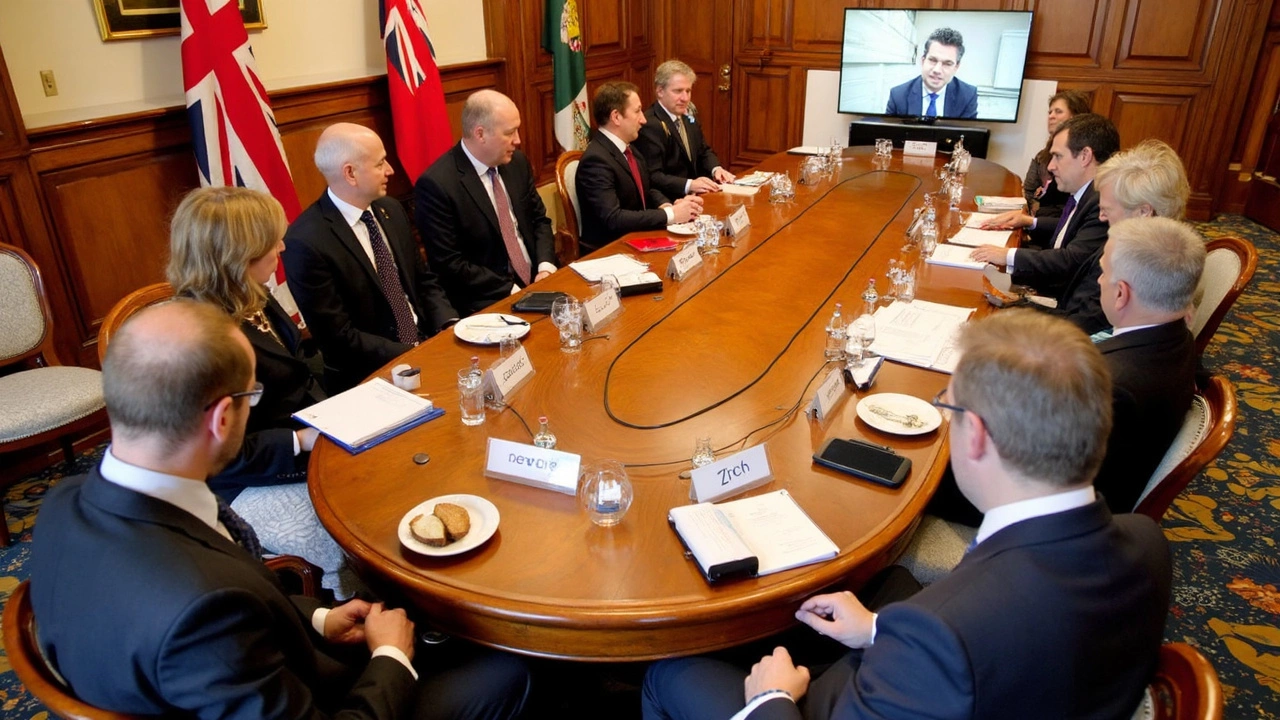Fintech Leaders Push for Change at UK's Premier Finance Gathering
There's no denying it—the UK wants to set the pace for global fintech. At the latest finance summit in London, top bosses from Revolut and Zilch weren’t just talking shop. Their presence signaled something bigger: Britain is not quietly letting fintech innovation slip by in a post-Brexit world. With almost 200 delegates filling the room, everyone from investment titans to rising startups tuned in as the UK government rolled out the red carpet, touting a fresh £30 billion investment windfall announced by Prime Minister Rishi Sunak. But the conversation went far beyond simple numbers.
Revolut’s founder, Nik Storonsky, made it clear he’s not thrilled with the speed of British regulators. Since 2015, his company’s been on a rocket: 18 million customers, a $33 billion valuation, rapid international expansion. But in his view, the Financial Conduct Authority (FCA) is holding things up. He said straight out that the bank licensing delay isn’t just frustrating—it chips away at customer trust, and that trust is everything in the fintech game. Storonsky wants the UK to be seen as a true financial powerhouse, but he warns that slow approvals could send the next fintech superstar hunting for licenses elsewhere.
This air of impatience isn’t unique to Revolut. Zilch, another British fintech darling now valued over $2 billion, showed up at the summit ready to back more agile regulation. Both companies, leading the unicorn charge, point to the UK’s surprisingly fertile fintech soil. The fact that these homegrown firms are now making waves across Europe and beyond isn't lost on anyone in government—especially when competition from places like Singapore and New York is so fierce.
Regulation, Innovation, and the Brexit Factor
While the summit was all about optimism, there’s always the regulatory elephant in the room. The FCA isn’t shy about its position—they say tough checks are vital. It’s about keeping the system clean from money laundering and making sure new banks can really handle the pressure. The watchdog says it’s not slowing down progress; it’s just ensuring nobody cuts corners on safety, especially as crypto and digital payments keep shaking up how we all move our money.
Some sparks flew during panel talks about post-Brexit finance. Since the UK split from the EU, questions haven’t died down about what cross-border regulation will really look like. Treasury officials at the summit argued for closer ties with Europe, hoping that smoother collaboration will help both sides create rules that work for a new era—particularly as boundaries between old banks and new tech get fuzzier every year.
Behind all the policy chatter, there’s a bigger story to watch: The UK wants not only to attract the world’s money, but to guide how financial innovation is done safely and quickly. The summit gave a stage to leaders who are already shaping the digital finance scene, and who aren’t afraid to demand changes if they think it’ll keep London’s fintech crown shining.
